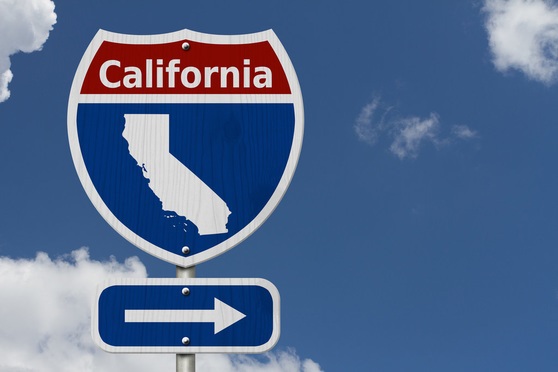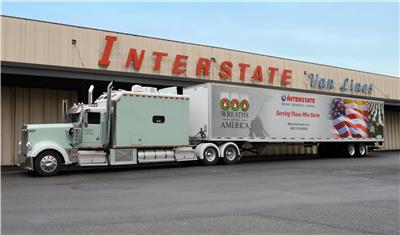Colleges
- American Athletic
- Atlantic Coast
- Big 12
- Big East
- Big Ten
- Colonial
- Conference USA
- Independents (FBS)
- Junior College
- Mountain West
- Northeast
- Pac-12
- Patriot League
- Pioneer League
- Southeastern
- Sun Belt
- Army
- Charlotte
- East Carolina
- Florida Atlantic
- Memphis
- Navy
- North Texas
- Rice
- South Florida
- Temple
- Tulane
- Tulsa
- UAB
- UTSA
- Boston College
- California
- Clemson
- Duke
- Florida State
- Georgia Tech
- Louisville
- Miami (FL)
- North Carolina
- North Carolina State
- Pittsburgh
- Southern Methodist
- Stanford
- Syracuse
- Virginia
- Virginia Tech
- Wake Forest
- Arizona
- Arizona State
- Baylor
- Brigham Young
- Cincinnati
- Colorado
- Houston
- Iowa State
- Kansas
- Kansas State
- Oklahoma State
- TCU
- Texas Tech
- UCF
- Utah
- West Virginia
- Illinois
- Indiana
- Iowa
- Maryland
- Michigan
- Michigan State
- Minnesota
- Nebraska
- Northwestern
- Ohio State
- Oregon
- Penn State
- Purdue
- Rutgers
- UCLA
- USC
- Washington
- Wisconsin
High School
- Illinois HS Sports
- Indiana HS Sports
- Iowa HS Sports
- Kansas HS Sports
- Michigan HS Sports
- Minnesota HS Sports
- Missouri HS Sports
- Nebraska HS Sports
- Oklahoma HS Sports
- Texas HS Hoops
- Texas HS Sports
- Wisconsin HS Sports
- Cincinnati HS Sports
- Delaware
- Maryland HS Sports
- New Jersey HS Hoops
- New Jersey HS Sports
- NYC HS Hoops
- Ohio HS Sports
- Pennsylvania HS Sports
- Virginia HS Sports
- West Virginia HS Sports
ADVERTISEMENT
Install the app
How to install the app on iOS
Follow along with the video below to see how to install our site as a web app on your home screen.
Note: This feature may not be available in some browsers.
You are using an out of date browser. It may not display this or other websites correctly.
You should upgrade or use an alternative browser.
You should upgrade or use an alternative browser.
HJcane would you please fact check this video.........thanks
- Thread starter canam1965
- Start date
So if Trump has to own successes and failures. Why hasn’t bidene owned inflation, gas prices, Afghanistan pull out etc? I’d respect Biden much more if he owned some of what’s happening and not just blame trump at every turn.

Exodus of Corporate HQ from California Keeps Growing | GlobeSt
Texas, Tennessee, Arizona and Nevada are top destinations for companies moving their headquarters out of California.
Didn’t Chicago just have a major company bail for Miami?
Exodus of Corporate HQ from California Keeps Growing | GlobeSt
Texas, Tennessee, Arizona and Nevada are top destinations for companies moving their headquarters out of California.www.globest.com
Boeing, Caterpillar and now the $50-billion hedge fund, Citadel, all within two months said they were moving their headquarters out of Illinois. Citadel CEO Ken Griffin announced to employees June 23 the firm's headquarters is leaving Chicago for Miami after 30 years.Didn’t Chicago just have a major company bail for Miami?
I'll give it a shot for sure.
California, NY, etc....have a higher % of College Grads, large corporations or high tech corporations, industry and trade. Many Red States are more rural. They don't have the luxury of High Tech corporations headquartered there. In addition, many Red states relied heavily on manufacturing an area that had been DECIMATED by decades of failures in policies by both Parties in DC>
We found that 62 percent of manufacturing workers were in red states—compared to 37 percent of manufacturing workers in blue states. Similarly, of those whose highest level of educational attainment was a high school diploma, two thirds were in red states compared to just one third in blue states.
NEWSWEEK NEWSLETTER SIGN-UP >
Our conclusion was stark: The difference between blue states, where most elites live, and red states, where rural working class Americans makes their homes, is a tale of two economies. So stark is the divide now that you can even see this tale of two economies bearing out in red counties within blue states.
April 15, 2022 BUREAU OF LABOR STATISTICS
RED STATES HAVE LOWER UNEMPLOYMENT RATES
- Out of the top 25 states with the lowest unemployment rates, 20 are led by Republican governors and 21 have Republican-controlled legislatures.
- 12 of the 15 states with the lowest unemployment rates are led by Republicans.
- The average unemployment rate for the nation’s 28 states with Republican governors is just 3.2 percent.
- Democrat-led states have an average unemployment rate nearly a percentage point higher – 4.1 percent.
- Two-thirds of the states with unemployment rates lower than when the pandemic began are led by Republican governors, and 89 percent have Republican-controlled legislatures.
- 17 states hit new record low unemployment rates, 13 of which have Republican governors and 16 have Republican-controlled legislatures

Red states top blue states for low taxes and best economies: List - Washington Examiner
In what may be the clearest example that conservative economic policies work, a new list of “Rich States, Poor States” shows that Republican-controlled states are doing far better than those dominated by Democrats.In its 15th annual report, timed for Tax Day, the American Legislative Exchange...
If Gavin Newsom were a college football coach, he would get the Alabama job after Saban, go 7-5 with Saban's talent, then brag about how many NC's Bama won over the past 10 years (9 with Saban coaching).
Does Newsom brag about how California leads the nation in outdoor public toilets?
Now lets look at California.
Blessed by great soil and weather and natural beauty it produces agriculture, has high tech silicon valley, has Hollywood, has many corporate headquarters.
But it has no water. It has rolling blackouts . It has some of the highest taxes in the country. It has one of the highest homelessness in the country. It is regarded as one of the LEAST States in affordability and it has 1 of the highest exodus rates.
California May 2022 LA Times ( a very liberal newspaper)

Op-Ed: California’s economy may seem healthy. But just wait for the next recession
The state’s dependency on tax revenues from the rich and the continued health of the tech economy make it vulnerable in the event of a downturn.
@canam1965 now lets read Forbes article from April 2022
10 States People are Fleeing From and 10 States People are Fleeing To;

 www.forbes.com
www.forbes.com
Hardly Utopia man..............................
All 10 are Blue fleeing
All 10 are Red receiving.
The SHIFT is on.
10 States People are Fleeing From and 10 States People are Fleeing To;

10 States People Are Fleeing And 10 States People Are Moving To
Get expert advice on improvements to your home, including design tips, how much you'd expect to pay for a pro and what to ask when hiring experts.
Hardly Utopia man..............................
All 10 are Blue fleeing
All 10 are Red receiving.
The SHIFT is on.
Richest man in Illinois Citadel Hedge Fund joined Caterpillar and Boeing as packing up and leaving.Didn’t Chicago just have a major company bail for Miami?
That no small potatusRichest man in Illinois Citadel Hedge Fund joined Caterpillar and Boeing as packing up and leaving.
NY Times 6/15/22 article copy and paste so you can read it

By Erin Woo
June 15, 2022, 8:56 a.m. ET
Image

Credit...Filippo Fontana

If you’ve been steeped in the start-up world, you’d be forgiven for thinking that the end of the world — or, at least, the tech bubble — was nigh.
After a two-year run of big funding rounds and even bigger valuations, venture capital funding is drying up. Start-ups are cutting costs and laying off employees. As my colleague Erin Griffith wrote recently, fear and loathing are returning to tech start-ups as geopolitical uncertainty increases, inflation soars and interest rates finally rise.
What does this mean for the rest of California? According to economists, it’s not yet time to worry. Even widespread start-up layoffs — nearly 17,000 in May alone, according to Layoffs.fyi, a crowdsourced online tracker — are still minimal in the context of California’s 17 million jobs, and the presence of big tech firms will stabilize the economy in a way that didn’t happen during the dot-com boom, economists said.
“The California economy is enormous,” Somjita Mitra, chief economist of the California Department of Finance, said. “If there are short-term slowdowns or declines in certain sectors, generally, as long as the health of the economy is still going, that gets absorbed into other industries relatively quickly.”
Besides that, big firms like Google, Apple and Microsoft are actually ramping up hiring and salaries despite plunging stock prices. For them, it’s business as usual.
Still, economists and watchdogs have been closely monitoring the potential impacts on California’s budget. In May, Gov. Gavin Newsom announced that the state expected a record $97 billion surplus, driven in part by an increase in income taxes paid by its biggest taxpayers.
The reliance on capital gains taxes that have driven the surplus also makes California’s budget volatile. Newsom has warned that budget planners have to be “deeply mindful” of the potential for economic downturn. State lawmakers on Monday passed a $300 billion budget framework for the upcoming fiscal year, but they still had to negotiate key pieces with the governor.
Declining tech revenues could eat into California’s budget surplus, economists said, but those impacts haven’t yet materialized.
“Silicon Beach, Silicon Valley — they’re extremely important in aggregate for us,” Mitra said. “But a lot of the slowdown tends to be in those young firms that generally have a hard time anyway because they’re not producing when they’re in the infant stage.”
Overall, economists said, national and global economic influences will be more important than the turbulence in the stock market.
“What happens more generally to inflation, what happens in Ukraine, are there further closures or are we really going to be back to opening up — those all matter more than what’s going to be happening with near-term market volatility in the stock markets,” Lenny Mendonca, Newsom’s former chief economic and business adviser, said.
Longtime Sacramento budget writers are quick to recall the fallout from the early 2000s dot-com bust, which turned surpluses into chasmic deficits. But the state has done a better job of building reserves this time around. And Newsom is proposing to spend most of the state’s discretionary surplus on one-time expenditures like additional debt payments and rebate checks.
On a local level in the Bay Area, the same factors that have hampered San Francisco’s economic recovery — namely, that tech companies have been slow to bring workers back to the office — could blunt the impacts of tech layoffs.
“We’re living in a world where there haven’t been a lot of tech workers walking around spending money for the past two years,” Ted Egan, San Francisco’s chief economist, said. “If we’re moving to a world where they aren’t walking around spending money because they’ve been laid off, it’s not going to feel that different.”
What the Changing Tech Market Means for California’s Economy
Venture capital is sounding the alarm, but economists say the broader impacts are likely less dire.- Give this article

By Erin Woo
June 15, 2022, 8:56 a.m. ET
Image

Credit...Filippo Fontana

If you’ve been steeped in the start-up world, you’d be forgiven for thinking that the end of the world — or, at least, the tech bubble — was nigh.
After a two-year run of big funding rounds and even bigger valuations, venture capital funding is drying up. Start-ups are cutting costs and laying off employees. As my colleague Erin Griffith wrote recently, fear and loathing are returning to tech start-ups as geopolitical uncertainty increases, inflation soars and interest rates finally rise.
What does this mean for the rest of California? According to economists, it’s not yet time to worry. Even widespread start-up layoffs — nearly 17,000 in May alone, according to Layoffs.fyi, a crowdsourced online tracker — are still minimal in the context of California’s 17 million jobs, and the presence of big tech firms will stabilize the economy in a way that didn’t happen during the dot-com boom, economists said.
“The California economy is enormous,” Somjita Mitra, chief economist of the California Department of Finance, said. “If there are short-term slowdowns or declines in certain sectors, generally, as long as the health of the economy is still going, that gets absorbed into other industries relatively quickly.”
Besides that, big firms like Google, Apple and Microsoft are actually ramping up hiring and salaries despite plunging stock prices. For them, it’s business as usual.
Still, economists and watchdogs have been closely monitoring the potential impacts on California’s budget. In May, Gov. Gavin Newsom announced that the state expected a record $97 billion surplus, driven in part by an increase in income taxes paid by its biggest taxpayers.
The reliance on capital gains taxes that have driven the surplus also makes California’s budget volatile. Newsom has warned that budget planners have to be “deeply mindful” of the potential for economic downturn. State lawmakers on Monday passed a $300 billion budget framework for the upcoming fiscal year, but they still had to negotiate key pieces with the governor.
Declining tech revenues could eat into California’s budget surplus, economists said, but those impacts haven’t yet materialized.
“Silicon Beach, Silicon Valley — they’re extremely important in aggregate for us,” Mitra said. “But a lot of the slowdown tends to be in those young firms that generally have a hard time anyway because they’re not producing when they’re in the infant stage.”
Overall, economists said, national and global economic influences will be more important than the turbulence in the stock market.
“What happens more generally to inflation, what happens in Ukraine, are there further closures or are we really going to be back to opening up — those all matter more than what’s going to be happening with near-term market volatility in the stock markets,” Lenny Mendonca, Newsom’s former chief economic and business adviser, said.
Longtime Sacramento budget writers are quick to recall the fallout from the early 2000s dot-com bust, which turned surpluses into chasmic deficits. But the state has done a better job of building reserves this time around. And Newsom is proposing to spend most of the state’s discretionary surplus on one-time expenditures like additional debt payments and rebate checks.
On a local level in the Bay Area, the same factors that have hampered San Francisco’s economic recovery — namely, that tech companies have been slow to bring workers back to the office — could blunt the impacts of tech layoffs.
“We’re living in a world where there haven’t been a lot of tech workers walking around spending money for the past two years,” Ted Egan, San Francisco’s chief economist, said. “If we’re moving to a world where they aren’t walking around spending money because they’ve been laid off, it’s not going to feel that different.”
And starting Cane NIL, LOLRichest man in Illinois Citadel Hedge Fund joined Caterpillar and Boeing as packing up and leaving.
Similar threads
- Replies
- 4
- Views
- 153
- Replies
- 5
- Views
- 177
- Replies
- 33
- Views
- 520
ADVERTISEMENT
Latest posts
-
-
-
-
The latest on Michigan State DT Transfer Simeon Barrow after OV to Miami
- Latest: BenjaminRivals
-
ADVERTISEMENT

